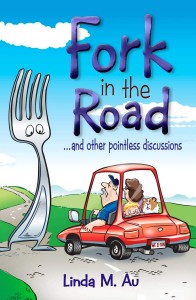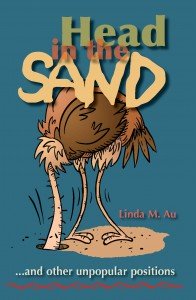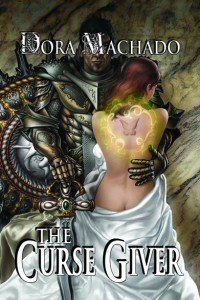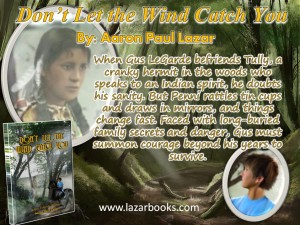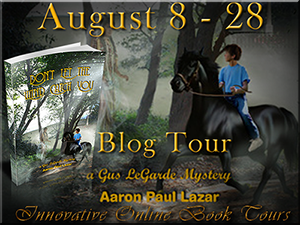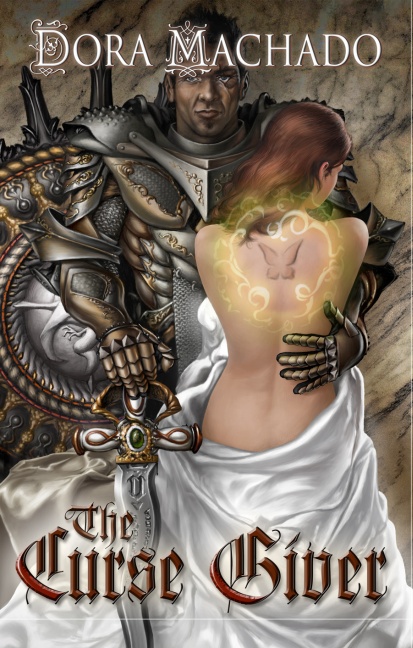Hi Folks,
Here’s my brand new interview with South African paranormal and urban fantasy author, Karen Swart, where she asked me all kinds of interesting questions, including whether my books had a hidden message. You know what? I had to think about that one.
Enjoy!
D.
****
Hi Dora! Did you always wanted to be a writer?
Hi Karen. Yes! I’ve wanted to be a writers since as far back as I can remember.
When did you first consider yourself a “writer”?
Good question! I think I only began to call myself a writer after my first book, Stonewiser: The Heart of the Stone, was published.
How long did it take to get your first book published?
About a year from beginning to end. It felt like a century!
Do you do another job except for writing?
Not anymore! These days I’m lucky enough to write full time and I’m enjoying every minute of it.
What is the name of your latest book, and if you had to summarize it in fewer than 20 words what would you say?
My latest book is called The Curse Giver. Twenty words, eh? Why, let’s give the old logline a try: An innocent healer condemned to death must ally with the cursed lord pledged to kill her to defeat the curse giver who has already conjured their ends.
Who is your publisher?
I’m a very lucky gal. The Curse Giver was published by Twilight Times Books, an independent publisher based out of Kingsport, Tennessee, that specializes in publishingcritically acclaimed literary, mystery and SF/F books. A dynamic, top-of-the-line, quality-oriented publisher, TTB has more than 140 titles in the 2013 Spring Catalogue and is the home of a talented and friendly bunch of authors who have enriched my publishing experience. Check out TTB at http://twilighttimesbooks.com/
How long does it usually take you to write a book, from the original idea to finishing writing it?
It takes me about four months, give or take a little. Keep in mind that the time invested is not always consecutive when you are working on a novel. Sometimes I’ll advance one project and then shift to another novel, before going back to complete the first one.
What can we expect from you in the future? More books of the same genre? Books of a different genre?
You can expect more stories from me in the future, more dark fantasy romance, a dark contemporary fantasy with a Latin twist, and more about the world of The Curse Giver in its companion novel, The Soul Chaser.
What genre would you place your books into?
The Curse Giver falls into the fantasy genre and fits well in the subcategories of epic fantasy, dark fantasy, fantasy romance and romantic fantasy.
What made you decide to write that genre of book?
I’ve always been intrigued by the fantasy genre. I love the genre’s creative freedom, the opportunity to rethink, redesign and reinterpret the human experience, the creative challenges that that arise from world building, and the mysteries that magic brings to the human equation. I grew up in the Dominican Republic and my life always felt kind of magical in many ways. I’ve always straddled different worlds. Fantasy is a perfect fit for me.
Do you have a favorite character from your books? And why are they your favorite?
I do. I think it’s a tossup between the main characters, Bren and Lusielle. I’ve always been a sucker for the underdog, the reluctant hero and the tortured soul. In The Curse Giver, Bren, Lord of Laonia, is all of those. He’s got the makings of a hero, but his circumstances make him an outcast and a villain in his own mind. He is weary, bitter and troubled, but he’s also dutiful and determined, and he will not betray his people. As the story begins, he rescues Lusielle from the pyre, but only because he’s hunting a birthmark she bears. To defeat the curse that has obliterated his family and is killing him, he has to murder the woman who bears the birthmark in the foulest possible way. But as he escapes with his prey in tow, she is not what he expected. He faces yet another dismal choice: Can he murder the only woman capable of healing more than his body, his soul?
Lusielle is also one of my favorite characters in The Curse Giver, but for a totally different reason. When the story begins, she’s been betrayed by her greedy husband and condemned to die for a crime she didn’t commit. After years of abuse and slavery, the false accusations destroy her bleak but orderly world. As she flees with the bitter lord who has rescued her, she finds herself in an impossible situation: If she’s going to survive, she must help the mysterious lord who is determined to kill her to defeat the curse giver who has already conjured their ends. What I like most about Lusielle is that she has to change; she has to muster the courage to free herself from her tragic past and find the strength within to thrive in a world she doesn’t understand.
How long have you been writing? And who or what inspired you to write?
I’ve been writing for publication for about seven years now. I’m inspired to write by many people and many experiences, but ultimately, I write because I can’t stop writing. I swear. I’ve tried. I just can’t. My mind is powered by this story generator that keeps on going and won’t quit.
Do you have a certain routine you have for writing? Do you listen to music, sit in a certain chair…?
I’m one of those people who prefer to write in silence. I guess my mind is way too noisy as it is! I have a writing studio in my home, a cozy little room that opens up to a veranda that overlooks a beautiful, spring-fed river. It’s quiet and peaceful, and it’s my favorite place to write. I like to sit on my favorite chair, a Scandinavian ergonomic design that offers excellent support for the long hours of writing.
Do you choose a title first, or write the book, then choose the title?
I usually discover the title of my novels at the very moment when I write it for the first time into the story. It can happen early on, during the opening paragraph or late in the process. It’s really neat. It’s always a “wow” moment.
Are there any hidden messages or morals contained in your books? (Morals such as those in Aesop’s Fables: “The moral of this story is..”)
I don’t strive to preach any kind of morality in my stories, but I do write a lot about conflicting situations, injustice, opposing beliefs, and the meaning of concepts such as truth, faith and prejudice. Sometimes, the storyline leaves me and my readers thinking about things. For example, in The Curse Giver we join with the characters as they discover how reason, knowledge and awareness are the main components of our personal sense of strength. We don’t have to be magical to be strong. We just have to believe in ourselves.
Which format of book do you prefer, e-book, hardback, or paperback?
I’m partial to the indestructible, beach-proof, throw-it-in-your-bag, good old-fashioned paperback. I love the feel of a book between my hands. But I will confess—albeit reluctantly—that my latest e-reader has been growing on me. The idea that I can carry ALL of my favorite books around in my purse is irresistible.
Do you think books transfer to movies well? Which is your favorite/worst book-to-movie transfer?
I think that books and movies are two different and distinct media. I usually approach them with different expectations. What makes a book great is not the same thing that will work for a movie. The translation is particularly challenging for science fiction and fantasy. There are an awful lot of great SF/F books that have been made into terrible movies. I used to say that I never wanted to see my books made into movies. That is, until I watched George R. Martin’s Game of Thrones on HBO. It might be time to rethink the old prejudices. . . .
Your favorite food is?
Cake. I know. Not a good one. I like carrots too. Does that help?
Your favorite singer/group is?
That would be a long list!
Your favorite color is?
Blue.
Remember to check out today’s spotlight to find out more about Dora and The Curse Giver.
http://authorkarenswart.blogspot.com/
http://authorkarenswart.blogspot.com/2013/10/book-blitz-curse-giver-by-dora-machado.html
